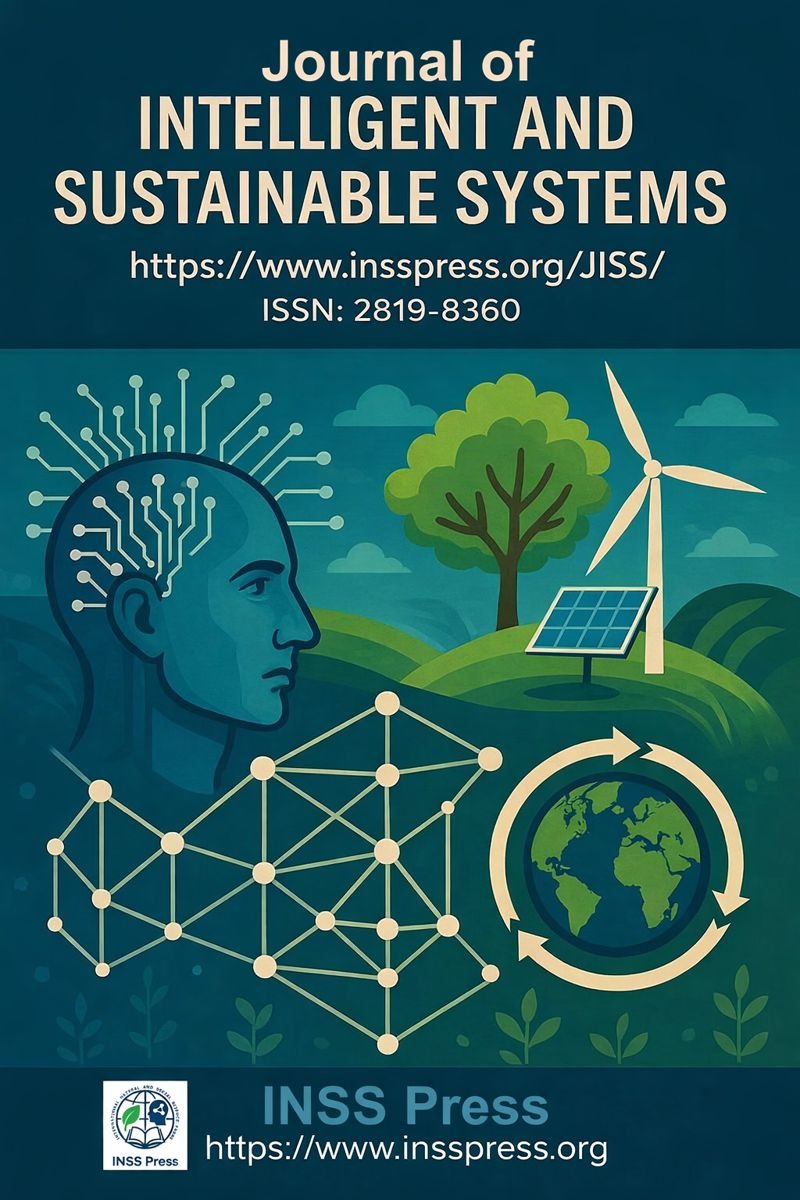Aims & Scope
Objectives
- Provide a transdisciplinary, peer‑reviewed platform that bridges intelligent systems (AI, data analytics, machine learning, robotics, decision‑support systems, cyber‑physical systems) with sustainability science across natural and social domains.
- Foster collaboration among engineers, computer scientists, social scientists, economists, geographers, and natural scientists to develop intelligent solutions for environmental protection, climate change mitigation, renewable energy integration, and sustainable resource management.
- Encourage frameworks and architectures that enhance the efficiency, resilience, and equity of socio‑technical systems.
- Maintain a rigorous, fair blind peer‑review process with rapid online publication to maximize knowledge dissemination.
Readership
Academics and researchers in AI, computer science, systems engineering, sustainability science, environmental studies, urban planning, management science, and the social sciences; practitioners in renewable energy, smart cities, sustainable manufacturing, agriculture, transportation, public health, and resource management; policy‑makers, NGOs, and industry leaders; students and early‑career researchers.
Scope
- Sustainable computing and hardware: energy‑efficient algorithms and architectures, power‑aware networking, sustainable hardware, energy harvesting.
- Smart infrastructure and built environments: intelligent control for energy‑efficient buildings, green data centers, smart grids and microgrids.
- Renewable energy integration: AI‑driven forecasting, optimization and control, energy storage and grid integration.
- Sustainable manufacturing and supply chains: modeling, monitoring and optimization, circular economy, life‑cycle assessment (LCA), waste minimization.
- Climate change & environmental monitoring: ML for climate prediction, biodiversity monitoring, ecological risk assessment, pollution control.
- Smart agriculture and food systems: precision agriculture, robotics, irrigation intelligence, crop‑yield prediction.
- Mobility and transportation: electric and autonomous vehicles, public‑transport optimization, traffic‑flow management, emissions reduction.
- Social & economic dimensions: behavior, equity, ethics, governance, social acceptance, policy frameworks for intelligent sustainable systems.
- Modelling & evaluation: theoretical models, simulation, decision‑support tools, and targeted mathematical models for system‑level sustainability.
JISS emphasizes interdisciplinary work that integrates technological innovation with social and ecological considerations to advance sustainability and human well‑being.
Back to News List
